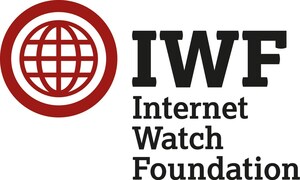Public Interest Registry Aims To Broaden International Reach With Creation Of Cyrillic, Chinese And Devanagari Web Addresses
The Registry Submits Applications to ICANN for Four Top-Level Internationalized Domain Names
RESTON, Va., May 31, 2012 /PRNewswire-USNewswire/ -- Public Interest Registry (PIR) – the not-for-profit operator of the .ORG domain – today applied for the creation and management of four internationalized domain names (IDNs) recognized as .ORG in non-Latin-based scripts. As part of its application to the Internet Corporation for Assigned Names and Numbers (ICANN), PIR submitted for the generic top-level domains (gTLDs) that translate "organization," "org" or "structured organization" into Devanagari, Cyrillic and Chinese-simplified scripts. The four applications- one in Devanagari, one in Cyrillic, and two in simplified Chinese- were filed as part of ICANN's global Internet expansion initiative which will go into effect as early as 2013.
(Logo: http://photos.prnewswire.com/prnh/20100628/ORGLOGO)
"With each IDN launch, the Internet takes a big step toward becoming a truly global entity," said Brian Cute, CEO of Public Interest Registry. "These specific IDNs help ensure the Internet's accessibility and availability to millions of individuals worldwide – especially those who do not speak Latin-based languages like English, French, German and Spanish, and who were previously offline or only use the Internet in a limited way."
PIR took the first step in supporting non-English languages in 2005 through the introduction of IDNs at the second level – IDNs where the name (left of the dot) is in a non-English language and the gTLD (right of the dot) remains in English. While these second-level IDNs proved useful in countries such as Sweden, Denmark, Hungary, Iceland, Poland and Korea (among others), they do not directly address communities who use languages such as Arabic or Chinese that are either character-driven or read right to left. These four new IDNs will provide a holistic, in-language domain name for native speakers of Devanagari, Cyrillic and Chinese, resulting in a consistent end-user experience and overall adoption of IDNs.
"Conservative estimates show that at least 20 percent of the world's population speaks in a language derived from these scripts," added Mr. Cute. "The Chinese IDN, for example, will make the Internet more user-friendly by enabling relevant Internet users to write a domain name or URL exactly the way it is supposed to be written in its native language – without substitution or translation."
In addition to applying for the four IDNs, PIR also submitted an application for the creation and management of the .NGO and .ONG domain names. Since its inception in 2002, PIR has served the interests of not-for-profit and non-governmental organizations (NGOs) online. The registry plans to expand its position as an advocate for these communities by providing an exclusive domain extension for NGOs looking for immediate recognition online and broader opportunities for public engagement, funding and partnerships.
ICANN plans to announce all TLD applicants in June and will review all applications during a "batching process" in the months ahead. For more information on PIR, please visit www.pir.org.
About Public Interest Registry
Public Interest Registry (PIR) is a nonprofit corporation that operates the .ORG top-level domain -- the world's third largest "generic" top-level domain with more than 9.9 million domain names registered worldwide. As an advocate for collaboration, safety and security on the Internet, PIR's mission is to empower the global noncommercial community to use the Internet more effectively, and to take a leadership position among Internet stakeholders on policy and other issues relating to the domain naming system. Public Interest Registry was founded by the Internet Society in 2002 and is based in Reston, Virginia, USA.
SOURCE Public Interest Registry
WANT YOUR COMPANY'S NEWS FEATURED ON PRNEWSWIRE.COM?
Newsrooms &
Influencers
Digital Media
Outlets
Journalists
Opted In




Share this article